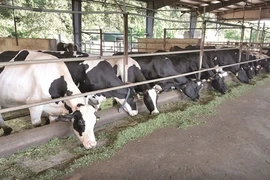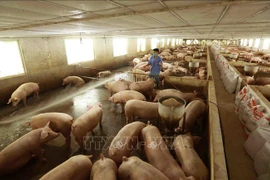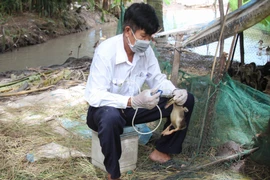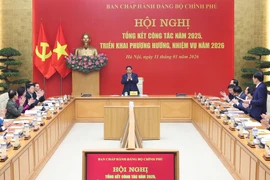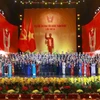Tay Ninh (VNS/VNA) - As Vietnam’s livestock sector faces increasing pressure from international markets demanding higher standards of food safety, traceability and sustainability, Tay Ninh province has emerged as a forward-looking locality determined to lead in high-tech and green animal husbandry.
With a clear development strategy, proactive investment attraction and strong policy support for sustainable agriculture, Tay Ninh is positioning itself as a major hub for high-tech livestock farming in the southern region.
The shift towards large-scale, technology-based farming in Tay Ninh was catalysed by lessons learned from the limitations of traditional small-scale models.
Recognising the need for innovation, several Vietnamese enterprises have joined forces with global agricultural giants to bring advanced technologies into local farming.
Among the most notable is the strategic partnership between Vietnam’s Hung Nhon Group and international corporations like De Heus from the Netherlands, a century-old enterprise, and Bel Ga from Belgium, with over 90 years of experience.
This collaboration has enabled Tay Ninh to adopt world-class agricultural practices, with farms certified under Global GAP’s 349 stringent criteria, far exceeding the 12 criteria of domestic VietGAP standards.
According to Vu Manh Hung, Chairman of the Hung Nhon Group, these partnerships are more than just technical collaborations; they also serve as strong symbols of Vietnam–Netherlands cooperation in sustainable agriculture.
The centrepiece of this strategy is the DHN Tay Ninh High-Tech Agricultural Complex, a flagship initiative under a broader investment plan encompassing 12 projects by 2030.
With total capital nearing 10 trillion VND (around 393 million USD), the complex has already completed its first phase, featuring a smart livestock farming zone.
Phase two, spanning 2025 to 2030, will include six additional projects focusing on high-quality breeding of pigs and chickens for export.
Once operational, these facilities are expected to generate over 4 trillion VND (157 million USD) in annual revenue and create hundreds of jobs for local communities.
Each project under the Hung Nhon is developed with a closed-loop system, from breeding and feed production to slaughtering and processing, in line with international standards such as ISO, Global GAP, and other specialised certifications.
Notably, all facilities integrate on-grid solar power systems, using up to 30 per cent clean energy, significantly cutting CO2 emissions compared to conventional electricity use.
Domestic enterprises are also making bold moves. One standout is Pacow International, founded by Oan Loc Phen, which has carved out a niche in Vietnam’s nascent chilled beef market.
Drawing on his experience in Australia, Phen envisioned a homegrown supply chain capable of delivering premium chilled beef to Vietnamese consumers without the need for imports.
Pacow has since developed a fully enclosed supply chain, from premium cattle breeding to modern processing plants. Slaughtering is done under strict hygienic conditions with no ground contact, followed by chilling at 0–4°C for 24 to 48 hours.
The meat is then microbiologically tested, vacuum-packed, and cold-stored to maintain freshness for up to 21 days.
The company’s products have secured ISO, HACCP, Global GAP and Halal certifications, making them eligible for export to Muslim markets and beyond.
What unites pioneers like the Hung Nhon and Pacow is their shared commitment to the “farm-to-table” model, ensuring traceability and consistency throughout the entire production chain, from animal genetics and feed to slaughter and distribution.
This approach not only improves food safety and product quality but also aligns with international market expectations.
According to Vu Manh Hung, this closed-chain model is the key to solving the long-standing fragmentation in traditional Vietnamese agriculture. “Stable, high-quality production benefits not just businesses, but also farmers and consumers,” he said.
Some enterprises, such as Pacow, are even incorporating agri-tourism into their business models.
Visitors, students and tourists are invited to tour the cattle farms, witness the production process, and sample fresh beef on site, a novel way to raise awareness and add value to the livestock industry.
Tay Ninh’s success is no accident. The province benefits from a favourable mix of conditions: expansive agricultural land, abundant clean water, a strategic location near HCM City and the Moc Bai International Border gate, and a young, industrious labour force with competitive wage levels.
According to Nguyen Dinh Xuan, Director of the Tay Ninh provincial Department of Agriculture and Environment, green development is a non-negotiable principle for the province.
Given the environmental impact risks associated with livestock farming, Tay Ninh has set clear standards, such as all new farms must adopt modern technology, including automated lighting, temperature and feeding systems. These solutions not only save costs but also boost productivity and reduce emissions.
Future development plans will continue to prioritise sustainability. Investors must demonstrate strong technological capabilities, particularly in waste treatment and recycling, as well as greenhouse gas mitigation.
The province also applies strict planning procedures: every project must be assessed for its environmental footprint, infrastructure compatibility and alignment with land-use zoning and population density.
Multi-level farming models that optimise space, reduce wastewater and control odours have already proven effective in several areas.
Despite progress, challenges remain. One major hurdle is the national livestock density regulation, capped at 1.5 livestock units per hectare across the Southeast region, including Ho Chi Minh City, Binh Duong, Ba Ria – Vung Tau and Tay Ninh.
This restriction has complicated the implementation of some large-scale projects. Authorities in Tay Ninh are currently petitioning the Ministry of Agriculture and Environment for a policy adjustment that balances environmental protection with agricultural development.
Beyond favourable conditions, Tay Ninh’s most valuable asset may be its open-minded and business-friendly administration.
Enterprises are not only given regulatory support but are also assisted in infrastructure, financing and problem-solving, a rare level of engagement in today’s rapidly evolving agricultural landscape.
For businesses like Hung Nhon and Pacow, investment is not solely for profit. Both have launched corporate social responsibility programmes that benefit remote and border communities, offering scholarships, job training and humanitarian aid.
Tay Ninh is fast becoming more than a promising destination for agricultural investors. It is a symbol of Vietnam’s transition from traditional to modern agriculture, from fragmented operations to integrated value chains, and from local ambition to global standards.
With vision and dedication, Tay Ninh is poised to become a national model in high-tech livestock development in the near future./.
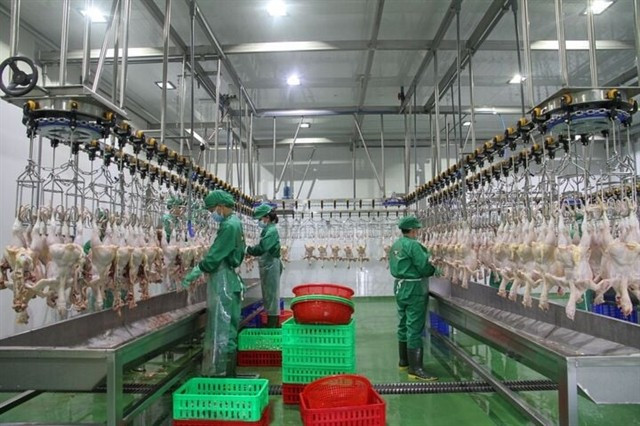
See more
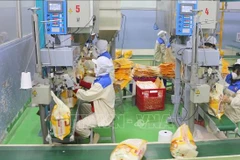
Vietnam exports over 8 million tonnes of rice, earning 4.1 billion USD in 2025
Vietnam exported more than 8.06 million tonnes of rice in 2025, earning over 4.1 billion USD.
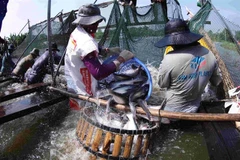
VASEP forecasts pangasius exports to hit 2.3 billion USD this year
VASEP forecasts that pangasius export turnover could reach around 2.3 billion USD in 2026, supported by tightening global whitefish supplies and improving demand in several key markets.
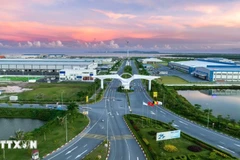
Hai Phong city targets 4.3 billion USD in FDI in 2026
Hai Phong’s investment appeal is underpinned by a rapidly expanding development space, including the Southern Coastal Economic Zone covering more than 20,000 hectares, a planned free trade zone, deep-water ports at Lach Huyen, and 12 industrial parks newly established in 2025.
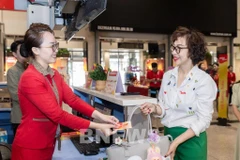
Vietjet shifts domestic check-in at Tan Son Nhat from January 13
During the recent New Year 2026 holiday peak, Vietjet added 380 flights, equivalent to nearly 78,000 additional seats, on many key domestic routes linking Hanoi and Ho Chi Minh City with destinations such as Vinh, Thanh Hoa, Hai Phong, Da Nang, Phu Quoc, Nha Trang and Da Lat.

Capital sources expanded for sustainable growth
According to the State Bank of Vietnam (SBV), by the end of November 2025, outstanding green credit was estimated at around 750 trillion VND (28.55 billion USD), with an average growth rate exceeding that of overall credit in the economy.
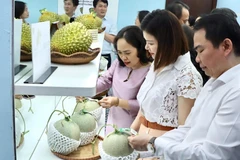
Traceability emerges as protective shield for Vietnam’s exports
Traceability data are evolving into a critical layer of protection, helping exporters reduce tariff risks, shorten inspection times and strengthen proof of origin, thereby avoiding exclusion from formal distribution networks.
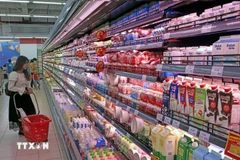
Retail market expands sharply, sustainability challenges persist
According to a report on recently released by the Ministry of Industry and Trade’s Agency for Domestic Market Surveillance and Development, the size of the market reached more than 7 quadrillion VND (about 266 billion USD) in 2025, up around 10% compared with 2024.
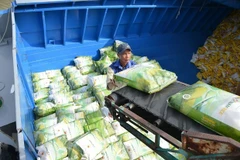
Vietnam eyes Israel as promising rice market under free trade deal
The Vietnam - Israel Free Trade Agreement (VIFTA), which took effect in late 2024, is poised to provide a fresh boost to agricultural exports, with rice at the forefront.

Resolution 79: State economy to lead growth
Resolution 79 is described as a “clear action declaration” by the Politburo, saying the state economy is not only responsible for maintaining macroeconomic stability, but must also become the force leading a new growth model that is green and sustainable.

Leveraging export advantages within RCEP region
In 2025, seafood exports to China alone exceeded 2.2 billion USD, up about 33% compared to 2024. Shipments to Japan fetched nearly 1.7 billion USD, a year-on-year increase of 14.6%, while those to the Republic of Korea and Australia grew by 9.6% and 3.2%, respectively.
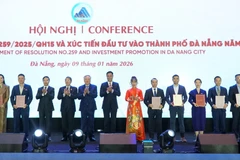
Da Nang continues targeted investment promotion approaches
According to Chairman of the Da Nang People’s Committee Pham Duc An, the city prioritises building sustainable economic ecosystems and focuses on key breakthrough sectors with strong spillover effects, including high technology and digital transformation, logistics, urban infrastructure, finance, processing and manufacturing industries, high-tech agriculture, and the pharmaceutical and medicinal herb industry.
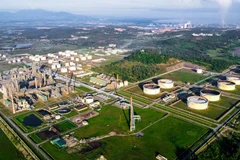
📝OP-ED: Resolution 79 – Launchpad for national aspirations
Resolution 79 is not only about SOEs. At a deeper level, it is about how Vietnam reorganises its development drivers in a world that is changing at breakneck speed.
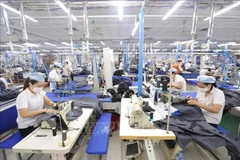
UOB raises Vietnam’s 2026 GDP growth forecast to 7.5%
In 2025, Vietnam’s GDP grew by 8%, beating UOB’s forecast of 7.7% but still falling short of the Government’s target of 8.3–8.5%, which would have needed an extraordinary boost in the final quarter.
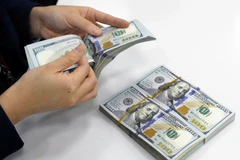
Reference exchange rate up 4 VND on January 10
With the current trading band of +/- 5%, the ceiling rate applicable for commercial banks during the day is 26,388 VND/USD, and the floor rate 23,874 VND/USD.
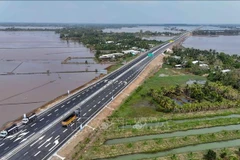
Infrastructure key to unlocking tourism’s role in double-digit growth target
With transport links running smoothly, urban infrastructure upgraded and digital platforms built out in a more systematic way, tourism would move beyond a purely consumption-driven sector to become a deeper, more durable engine of growth.

Hyundai sales in Vietnam rise almost 23% in December
In 2025, sales reached 53,229 vehicles across the market, a result considered a testament to the efforts by TC Group, Hyundai Thanh Cong, and the entire Hyundai dealership network nationwide amidst a volatile market.
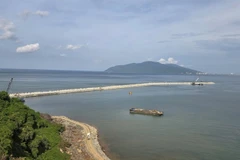
Da Nang approves plan key infrastructure developers at FTZ
The Da Nang FTZ is expected to contribute 17.9% to the city’s gross regional domestic product and create 127,000 jobs by 2040, with total investment needs estimated at 40 trillion VND (1.6 billion USD).
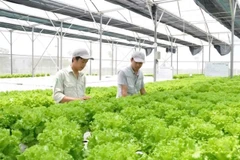
HCM City accelerates shift toward ecological urban agriculture
The city’s agricultural sector is undergoing a strong transformation, restructuring toward higher value-added and sustainable development. In recent years, the sector has maintained steady growth, with agricultural, forestry and fisheries output rising by an estimated 2.5% annually.
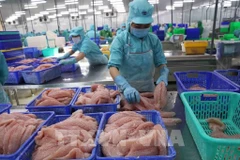
Vietnam records biggest trade surplus with Netherlands among European partners
Vietnam’s exports to the Netherlands totalled 13.5 billion USD last year, up 3.7% compared to 2024, while imports stood at 825 million USD, rising 5.2%.
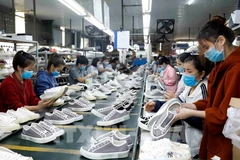
Footwear-leather industry seeks new drivers to sustain growth
Vietnam currently ranks third globally in footwear production, with around 1.4 billion pairs manufactured annually, behind China and India, and second in exports with approximately 1.3 billion pairs a year.
